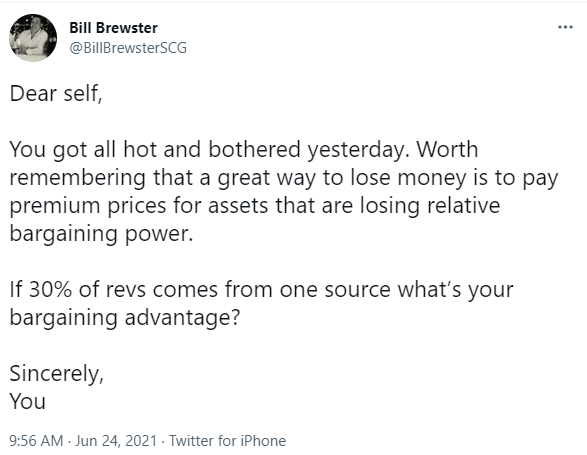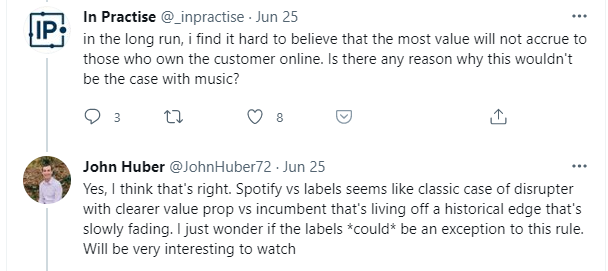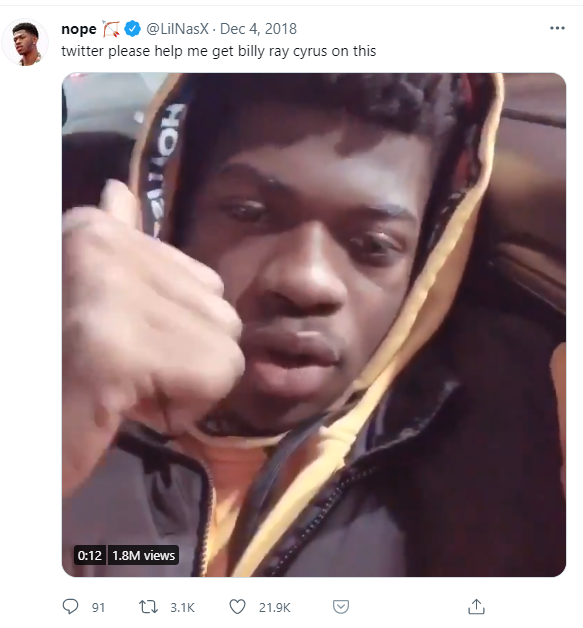|
Famed podcast host Bill Brewster noted on twitter that he was worried about customer concentration at a company he was researching. The company had 30% of its revenues coming from a single firm. In many cases, a 30% customer has tremendous power over its suppliers. Let's consider some examples. Walmart v Blendco For most consumer product companies, Walmart is a major customer, often 10-20% of sales. Walmart uses this fact to its advantage, resulting in headlines like this: This is part of Walmart's moat: their scale results in a positive feedback loop between low prices, customer traffic, and supplier negotiating power. Low prices —> High customer traffic —> Power over supplier —> Supplier cuts prices —> Lower prices To show how this works in practice, let’s war game a conversation between Walmart and a supplier of say, blenders: Walmart: We need you to lower your prices Blendco: We don’t want to Walmart: If you don’t, we will bring in another supplier of blenders Blendco: But our products are unique. People will be up in arms if you don’t carry our blenders! You will lose traffic! Our loyal customers will go online to buy our blender anyhow! Walmart: I don't think so Blendco: Eeek Walmart's success in this negotiation hinges on customers not caring much about differences in blender design. They may have a slight preference, but most wouldn’t notice if Blendco’s products disappeared from Walmart's shelves forever. In contrast, Blendco cannot recover this revenue. So most of the time, Blendco caves and offers Walmart a slightly lower price. But not all large customers have this type of power. Spotify v UMG For music labels, Spotify is an even larger customer than Walmart is in the consumer products world. For example, payments from Spotify constitute roughly 20-30% of Universal Music Group (UMG) revenue. This was the inspiration for Bill Brewster's tweet. The idea is that Spotify may be able to leverage this position and its "ownership of the customer relationship" to retain more value for themselves over time. The "customer ownership" theory appears to rely on experience from other online media businesses, where such ownership was key to long-term success. The obvious example is Netflix, where the relationship with its ever-expanding set of consumers has created the industry's largest budget for exclusive content, improving the product dramatically relative to competitors and driving even more subscriber signups. The problem with this analogy is that Netflix has always had a differentiated product relative to peers. Much of their content is unavailable to be streamed elsewhere, and they've always had far and away the most scale. Spotify has none of these advantages. In music, it has ~zero exclusive content, and while it does have the largest subscriber base, their scale advantage is modest relative to Netflix's. We think a hypothetical negotiation between Spotify and UMG would look like this: Spotify: We need you to lower your take rate UMG: We don’t want to Spotify: If you don’t we will bring in another supplier of Drake and Taylor... ok we can’t do that. Well, we will just drop your songs from Spotify completely. Our consumers won’t care. Maybe we can lower our prices. UMG: You don’t think your customers will jump to Apple Music or YouTube Music if you don’t have Taylor Swift, Billie Ellish, Drake, The Weeknd, The Beatles, Post Malone, Lady Gaga, and Ariana Grande? Spotify: Eeek In this negotiation, the fact that Spotify provides 30% of UMG’s revenues is almost irrelevant. While Spotify appears to own the customer relationship, at the end of the day it is a music app. The music is really what owns the relationship with consumers. Yes, there may be some consumers who feel locked in to Spotify due to playlists they’ve shared or followed. But for most people, the loss of UMG artists would would far outweigh other considerations. They would simply switch apps. Daniel Ek is too smart to take that kind of risk. Musicians v UMG What then, about the stars? Can't they use their leverage to get a bigger slice of the pie? The short answer is that they will try to, and they do have some leverage. After all, these stars control important music: their yet-to-be-recorded albums, at least those that are not under existing contracts. The back catalog will be owned by UMG regardless, but many stars have woken up to the long-term value provided by streaming and want to have greater ownership over their future music. They will be tough negotiators when current contracts run out. But wasn't this dynamic true before streaming? It has always taken a lot of money to retain hit musicians with expiring contracts. Somehow this fact has not crushed the economics of labels historically and I don’t see why streaming changes the picture, other than giving both sides a larger pie to split. Stars going independent What about the artists building an audience on social media and then going completely independent? This could happen, to be sure. But the evidence shows that artists continue to value working with the major labels. And why wouldn't they? The music industry is notorious for creating one-hit wonders. The real skill is in turning one hit into two, three, and four hits. That is what makes a career in the music industry and labels still bring considerable expertise to bear on this effort. Consider Lil Nas X. He uploaded the original Old Town Road track in December 2018. Note the request in this tweet: The song went viral on TikTok and elsewhere a few months later. He had all the attributes of an act that could've gone independent: 1) He produced his own music 2) He uploaded his songs to streaming services using an independent distribution provider 3) He gained traction on social media before signing anything All of this gave Lil Nas X leverage. Theoretically, he could have just uploaded his music to Spotify using something like CD Baby and raked in the $$$ without splitting it with a traditional label. But he didn't. He decided to sign with Columbia Records. In fact, he appears to have turned down a $1m+ offer from his original distribution platform / independent label Amuse. So far, this decision appears to be working well for him. After all, it was Columbia Records head Ron Perry that contacted Billy Ray Cyrus about appearing on a version of the song. That "remix" is now the official version, the one that broke the record for longest run at #1 on the Billboard charts. I don't think Lil Nas X is regretting his decision. While we have no doubt that some artists will go the independent route, and that social media will help them do so, we think the majority of breakout artists will want help. And that help is likely to come from the labels with the best track record of creating stars, with UMG at the top of the list. All of this being said, we continue to think that the best way to get exposure to UMG is through the extremely-discounted stock of Bollore. |
What this isInformal thoughts on stocks and markets from our CIO, Evan Tindell. Archives
December 2023
Categories |
Telephone813-603-2615
|
|
Disclaimer |




